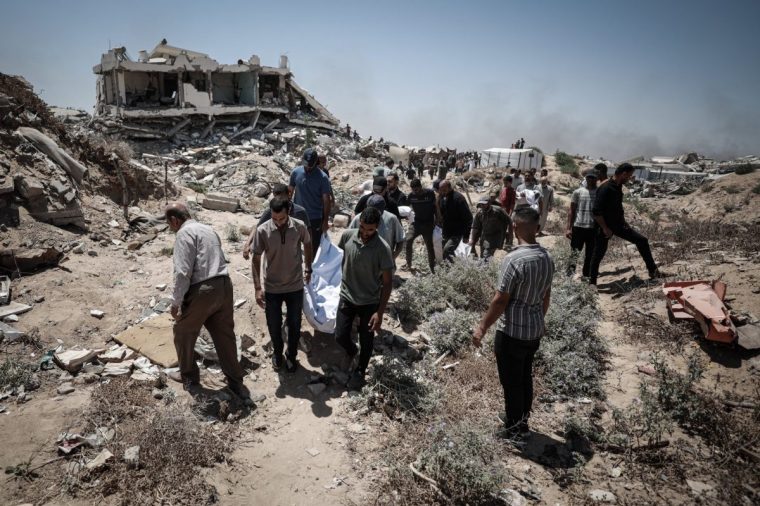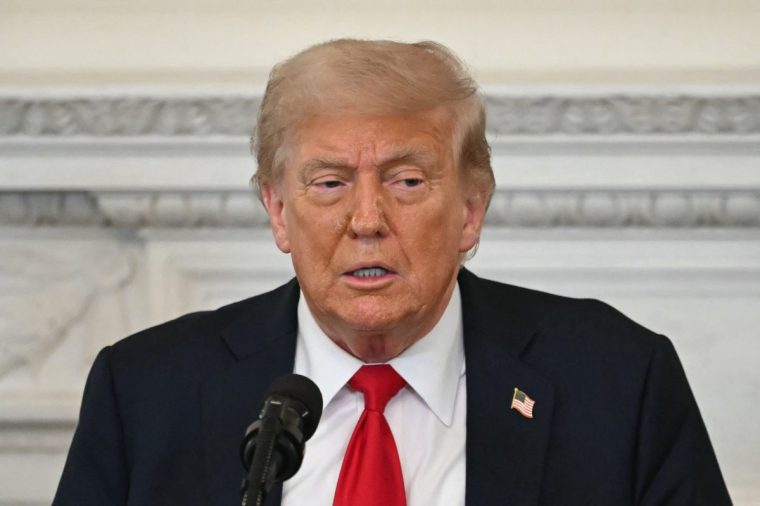The EU is struggling in a new world where Washington brazenly flouts rules and norms
BRUSSELS – Brussels hosted another heated round of soul-searching on Tuesday with EU foreign ministers failing to agree on sanctions against Israel in response to the war in Gaza.
Amid growing global outrage over the humanitarian catastrophe unfolding in the enclave, several member states – notably Ireland, Spain and Belgium – had called for concrete punitive steps, including suspending the EU-Israel Association Agreement.
A European Commission report said there were “indications” that Israel’s actions in Gaza violated human rights obligations. Amnesty International said the deadlock on punishing Israel was “a cruel and unlawful betrayal of the European project and vision, predicated on upholding international law and fighting authoritarian practices, of the European Union’s own rules and of the human rights of Palestinians”.
But despite fiery exchanges and legal arguments, the EU remains a spectator in the Middle East conflict. While some capitals pushed for a harder line, others – including Germany, Austria and Hungary – urged caution, citing the EU’s historically close ties with Israel and the legal and political complexity of any sanctions. Even proposals for modest measures, such as a review of arms export licences or restrictions on trade with Israeli settlements, failed to achieve consensus.
 Bodies of Palestinians killed in an Israeli airstrike in the southern Gaza Strip are brought to a private cemetery for burial in Gaza City (Photo: Khames Alrefi/Anadolu via Getty)
Bodies of Palestinians killed in an Israeli airstrike in the southern Gaza Strip are brought to a private cemetery for burial in Gaza City (Photo: Khames Alrefi/Anadolu via Getty)
At the heart of the debate lies a structural problem: foreign policy in the EU still operates largely by unanimity. And on Israel, that unanimity has always been elusive. The bloc’s rhetoric may have hardened in recent months, with repeated calls for a ceasefire, condemnation of civilian casualties, and expressions of concern over international law – but action has remained tepid. Even the announcement last week of a new humanitarian deal to ease aid access into Gaza was couched in cautious language and devoid of enforcement mechanisms.
That deal – which includes the promise of more aid trucks and a stronger EU presence at border crossings – was hailed by some as a diplomatic success. Yet its fragile nature was underscored by scepticism from aid agencies and reports that deliveries remain sporadic and inadequate.
The uncomfortable truth is that the European Union is not a key player in the Middle East. It lacks the hard power of the United States, the strategic clout of regional actors like Egypt or Qatar, and the credibility to act as a neutral mediator in the eyes of either side. Its influence is largely financial and normative: it funds Palestinian infrastructure, supports the United Nations Relief and Works Agency for Palestine Refugees (Unrwa) and champions international law. But these assets translate poorly into leverage when the violence escalates.
 Donald Trump’s new world where norms are repeatedly flouted has left the EU floundering (Photo: Andrew Caballero-Reynolds/AFP)
Donald Trump’s new world where norms are repeatedly flouted has left the EU floundering (Photo: Andrew Caballero-Reynolds/AFP)
The EU is not the only player watching from the sidelines. Britain, for all its historic influence in the region, is also a spectator. And even US presidents can find their power limited: Israeli Prime Minister Benjamin Netanyahu repeatedly ignored Joe Biden’s calls for restraint in Gaza, and Donald Trump has been unable to impose a lasting ceasefire.
But the EU likes to see itself as a global player. For decades, it has issued declarations, launched initiatives and convened dialogues – only to watch as its calls for restraint are ignored and its peace plans gather dust. Yesterday’s meeting was a reminder that, however strongly Europe feels about Gaza, it cannot impose outcomes in a conflict where it is largely absent from the security, intelligence and military dynamics.
There are echoes from last month, when Israel and then the US struck at Iranian nuclear targets. EU members had different interpretations on whether it was legal under international law, or desirable. But their opinions carried little weight in Washington, Tel Aviv and Tehran.
Indeed, the EU is struggling in Trump’s second term precisely because its soft power and its intricate grasp of international laws and organisations count for little in a world where Washington can brazenly assert strength, flouting global rules and norms.
That is what is happening in trade, where Trump has concocted a wacky rationale for applying tariffs on other countries, knowing that the global institutions supposedly policing trade policy have no power to stop him. And EU’s members are so confounded by Trump’s shameless schemes that they have been unable to reach a clear, unified stance.
The debates on Israel are more about Europe’s internal contradictions than about changing the course of the war. Until the EU resolves its own divisions and finds a way to project power beyond declarations, its role in the Middle East will remain what it has long been: vocal, well-intentioned and marginal.
